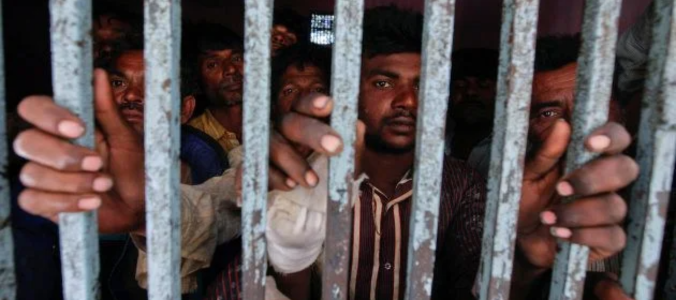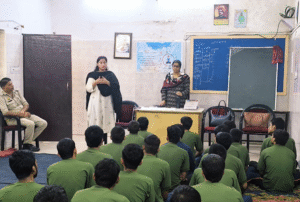
Back to Our Work
Landmark Delhi High Court Ruling For Convict’s Early Release

In a significant milestone for criminal justice reform, our team and panel lawyers successfully secured the premature release of a life convict who had served over 23 years in prison. Life imprisonment cases are eligible for review by the Sentence Review Board (SRB) after a minimum of 14 years, or 20 years in exceptional circumstances. This provision for early release is to provide opportunity for reform and is based on decisions like good behaviour and that the petitioner has demonstrated change. The decision in the case of Vijay v. State NCT of Delhi by the Delhi High Court marks a significant win for criminal justice and highlights systemic challenges in prioritising prisoners’ rehabilitation and reintegration in society. The petitioner Vijay Kumar Shukla’s application for premature release had been denied six times by the SRB—the statutory body that determines whether a prisoner should be released – despite his meeting the eligibility criteria. These rejections were based solely on the gravity of his offence, which is not a legally justified ground for the decision. Shukla was represented by iProbono India’s panel lawyers Vrinda Bhandari and Anandita Rana, and our program team lawyers Yamina Rizvi and Shrutika Pandey.
Through this judgement, the Delhi High Court has set a powerful precedent for compliance of law on the premature release of convicts.
The Case: Challenging the Status Quo
The petitioner was convicted under multiple sections of the Indian Penal Code, the Excise Act, and the Arms Act. Despite maintaining good conduct during his incarceration, including multiple parole and furlough releases between 2016 and 2021 and a two-year placement in an open jail, his applications for premature release were repeatedly denied by the (SRB).
The Delhi Prison Rules (DPR) stipulate that SRB reviews must prioritise factors such as conduct, rehabilitation potential, and socio-economic conditions. Yet the SRB ignored these considerations, focusing solely on the severity of the offence.
Recent research underscores that this is a troubling trend: 55% of SRB rejections from 2018 to 2021 were based exclusively on the nature of the crime, with little regard for reformative factors.[1]
A Win for Reform
The Delhi High Court called the rejection order “arbitrary, irrational, illogical, and disproportionate.” It pointed out that the SRB’s reasoning lacked substance, with an overreliance on vague justifications to deny release.
The Court stated:
“Rejecting premature release of a 26-year-old convict with an ‘etcetera’ is an unfortunate shortcut, perfectly opaque and a disservice to the rules and guidelines which the SRB is mandated to follow.”[2]
The court granted the petitioner’s release and also emphasised the need for adherence to the DPR’s principles of rehabilitation and reform.
Strategic Legal Intervention by iProbono India
iProbono India’s panel lawyers Vrinda Bhandari and Anandita Rana, and our program team lawyers Yamina Rizvi and Shrutika Pandey, played a pivotal role in the case. Recognising systemic flaws in the SRB’s processes, we submitted a procedural checklist to align SRB decisions with legal provisions and judicial precedents. The Delhi High Court incorporated this checklist into its judgment as a recommended tool for future SRB deliberations.
Sparking Systemic Change
This judgment is more than a victory for an individual petitioner. It represents the need for systemic change in crucial areas. With this strategic intervention, iProbono India has demonstrated the need for fair and objective assessments that move away from the gravity of the crime to consider an individual’s reform and rehabilitation journey. Through the introduction of transparent processes like our procedural checklist, we have delivered on our commitment to provide access to justice for all.
By addressing these systemic challenges, the case has set a precedent for more compassionate evaluations of prisoners’ reform journeys.
[1] Tripathi, K., & Dagan, N. (2024). ‘Entrapped in a penal time capsule’: Extralegal discourses in sentence review of life prisoners in India. Punishment & Society. https://doi.org/10.1177/1462474524124319
[2] 59711112024crlw14852024120829-570828.pdf. (n.d.). https://drive.google.com/viewerng/viewer?url=https://www.livelaw.in/pdf_upload/59711112024crlw14852024120829-570828.pdf
*Featured photo credit: Reuters











